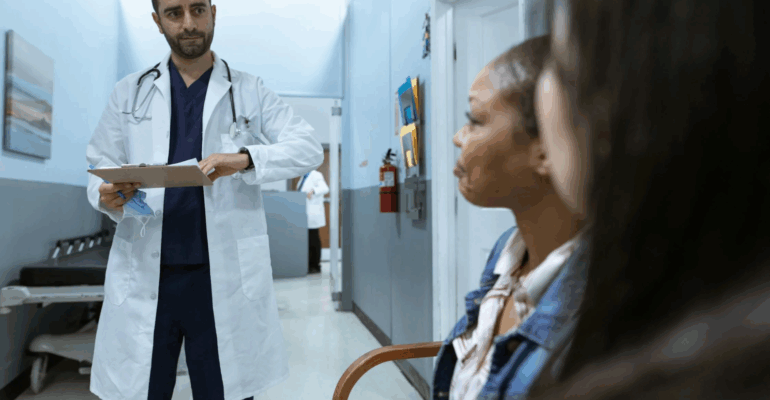Bird Flu and Dental Visits: What Patients Should Know

Bird Flu and Dental Visits: What Patients Should Know
As flu season approaches, one specific concern has captured the attention of health experts: bird flu. This contagious disease, commonly spread by infected birds, can also affect humans. The good news is that dental visits don’t need to be a cause for concern as long as appropriate safety measures are followed.
In this blog, we’ll discuss what patients should know about bird flu and how it affects dental visits, along with the precautions both patients and dental professionals can take to stay safe.
What is Bird Flu?
Bird flu, or avian influenza, is a viral infection that primarily affects birds but can occasionally spread to humans. Bird flu is rare in humans but can cause serious health issues. It spreads through contact with infected bird droppings, saliva, or contaminated surfaces. In rare cases, it can spread between humans in close contact.
For those planning to visit the dentist during bird flu season, understanding how the virus spreads and what precautions are in place is essential.
How Bird Flu Can Affect Dental Visits
Dental visits often require close contact between patients and dental professionals, which raises concerns about the transmission of viruses, including bird flu.
Risk of Cross-Contamination
Most dental procedures, from cleanings to more complex surgeries, involve close physical proximity. The potential for airborne transmission of the virus during procedures that create respiratory droplets, such as teeth cleaning or oral surgery, is a real concern.
Risk to Dental Staff and Other Patients
Given the close contact involved, there is a risk that the virus could spread not only to the patient but also to the dental team and other patients. This makes it crucial for both patients and dental staff to take extra precautions.
Precautions for Patients Visiting the Dentist During Bird Flu Season
Patients should take a few important steps to stay safe during flu season, especially if concerned about bird flu:
Inform Your Dentist About Your Health
If you’re feeling unwell or think you may have been exposed to bird flu, let your dentist know before your visit. If you have symptoms like fever, cough, or fatigue, consider rescheduling your appointment until you’re fully recovered to avoid spreading the infection.
Reschedule If You’re Unwell
If you have flu-like symptoms, such as fever or fatigue, it’s best to stay home and reschedule your dental visit. This gives you time to recover and helps prevent spreading illness to others.
Follow Pre-Visit Guidelines
Your dentist may have specific instructions, such as wearing a mask or practicing hand hygiene. Be sure to follow these guidelines to help keep everyone safe.
What to Expect at the Dental Office During Bird Flu Season
Many dental offices, including Ramlaoui, D.D.S, have strengthened infection control during flu season to protect patients and staff. These steps help reduce the risk of bird flu while providing necessary care:
Health Screening at the Entrance
Before entering, you’ll be asked to complete a health screening, which may include answering health questions or checking your temperature. This helps identify flu-like symptoms before treatment.
Increased Infection Control
Dental offices already follow strict infection control rules. During flu season, these are intensified by sterilizing instruments, disinfecting surfaces, and using air filtration to reduce airborne germs.
Personal Protective Equipment (PPE)
Your dentist and their team will wear PPE, including masks, gloves, and face shields, to reduce the risk of spreading the virus.
Key Steps for Bird Flu Safety During Dental Visits
| Step | Details |
| Health Screening | Temperature checks and symptom questionnaires before entering. |
| Personal Protective Equipment (PPE) | Dental professionals wear masks, gloves, and face shields. |
| Increased Sterilization | Enhanced disinfection of instruments and surfaces after each use. |
| Hand Hygiene | Patients and staff are encouraged to use hand sanitizers. |
| Patient Communication | Informing the dentist about symptoms or exposure to bird flu. |
Safety Measures for Dental Patients During Flu Season
To further protect yourself during your dental visit, follow these safety measures:
Wear a Mask: Masks are an effective way to reduce the risk of spreading respiratory droplets.
Practice Good Hygiene: Wash your hands before and after your visit to reduce the risk of transferring germs.
Avoid Touching Your Face: Avoid touching your face, particularly your eyes, nose, and mouth, to reduce the risk of transmitting germs.
Maintain Physical Distancing: Follow any social distancing guidelines provided by the clinic, especially if you’re in a waiting area.
Are Dental Visits Safe During Bird Flu Season?
While the risk of contracting bird flu during a dental visit is relatively low, taking the proper precautions significantly reduces that risk. Dental clinics like Ramlaoui, D.D.S are committed to providing a safe environment for their patients by implementing advanced infection control measures.
However, if you are in a high-risk category, such as those with a compromised immune system, it’s essential to discuss your concerns with your dentist. In some cases, your dentist may suggest postponing elective procedures until the flu season has passed.
How to Protect Yourself After Your Dental Visit
If you begin to experience flu-like symptoms after your dental appointment, it’s important to take action quickly. Contact your healthcare provider, and inform your dentist about any symptoms you experience post-visit. If you’re feeling unwell, stay home and rest to avoid spreading the virus to others.
Summing it Up
While bird flu is a risk, it’s important to stay informed and follow safety steps during dental visits. Dentists at Ramlaoui, D.D.S prioritize patient safety. By sharing symptoms, practicing good hygiene, and following office guidelines, you can have a safe dental visit during flu season.
If you have any concerns about visiting the dentist during flu season or need to reschedule an appointment, don’t hesitate to contact Ramlaoui, D.D.S for guidance and support.

